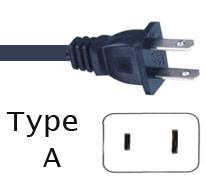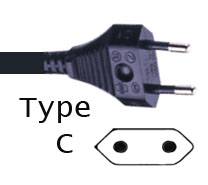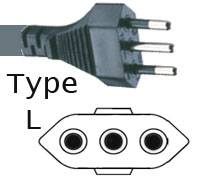Cuba, the largest island in the Caribbean, is a vibrant tapestry of culture, history, and natural beauty. From its colorful colonial architecture and lively street music to its pristine beaches and lush countryside, Cuba offers travelers a captivating blend of old-world charm and Caribbean flair. Whether you’re exploring the historic streets of Havana, salsa dancing in Trinidad, or diving among coral reefs in Varadero, Cuba promises an unforgettable journey.
Ultimate Cuba Travel Guide
Destinations
Best time to go
The best time to visit Cuba is during the dry season, which runs from November to April. During this time, the weather is generally warm and sunny, with lower humidity and minimal rainfall, making it ideal for outdoor activities and sightseeing. Keep in mind that December to March is the peak tourist season, so expect larger crowds and higher prices. The wet season, from May to October, brings warmer temperatures, occasional rain showers, and the possibility of hurricanes, but it also offers lower prices and fewer tourists.
Average Temperature By Month
January: 24°C (75°F)
February: 24°C (75°F)
March: 25°C (77°F)
April: 26°C (79°F)
May: 27°C (81°F)
June: 28°C (82°F)
July: 28°C (82°F)
August: 28°C (82°F)
September: 28°C (82°F)
October: 27°C (81°F)
November: 26°C (79°F)
December: 25°C (77°F)
What To Expect
Time Zone:
Cuba operates on Cuba Standard Time (CST), which is 5 hours behind Coordinated Universal Time (UTC-5). However, Cuba may observe daylight saving time, so be sure to check local time changes during your visit.
Currency:
The official currency of Cuba is the Cuban Peso (CUP), although the Cuban Convertible Peso (CUC) is the currency commonly used by tourists. It's advisable to exchange currency at official exchange offices (CADECA) or banks, as exchange rates may vary. Credit cards are accepted at some hotels, restaurants, and shops, but it's recommended to carry cash for smaller purchases and in more remote areas.
Language:
Spanish is the official language of Cuba and is spoken by the majority of the population. While English is also spoken, particularly in tourist areas, it's helpful to learn some basic Spanish phrases to enhance your travel experience and communicate with locals.
Airport:
José Martí International Airport (HAV) in Havana is the main gateway to Cuba, serving international flights from major cities around the world. Other international airports include Juan Gualberto Gómez Airport (VRA) in Varadero and Abel Santamaría Airport (SNU) in Santa Clara.
How To Get Around
Taxis: Taxis are a convenient way to get around cities and towns in Cuba. Private taxis and government-operated taxis (marked with a yellow taxi sign) are readily available and can be hailed on the street or booked through your accommodation.
Coco Taxis: Coco taxis, three-wheeled motorized rickshaws resembling coconuts, are a fun and unique mode of transportation in Cuba. They are often used for short trips within cities and tourist areas.
Classic Cars: Cuba is famous for its vintage American cars from the 1950s, which serve as taxis and private transportation for tourists. Riding in a classic car is a nostalgic experience and a popular way to explore the streets of Havana and other cities.
Viazul Bus: Viazul is the national bus company in Cuba, offering comfortable and affordable long-distance bus services between major cities and tourist destinations. Reservations can be made in advance, and tickets can be purchased at Viazul terminals or through travel agencies.
Rental Cars: Renting a car is an option for travelers who want to explore Cuba independently. Several international car rental companies operate in Cuba, offering a range of vehicles from compact cars to SUVs. However, be prepared for limited road signage and occasional fuel shortages.
Average Temperature By Month:
January: 24°C (75°F)
February: 24°C (75°F)
March: 25°C (77°F)
April: 26°C (79°F)
May: 27°C (81°F)
June: 28°C (82°F)
July: 28°C (82°F)
August: 28°C (82°F)
September: 28°C (82°F)
October: 27°C (81°F)
November: 26°C (79°F)
December: 25°C (77°F)
Plugs:
The standard voltage in Cuba is 110 volts AC, with a frequency of 60Hz. The most commonly used plug types are Type A (two flat parallel pins) and Type B (two flat parallel pins with a grounding pin). It's advisable to bring a universal adapter if your devices have different plug types.
VPN:
Access to certain websites and online services may be restricted in Cuba. Consider using a virtual private network (VPN) to securely access the internet and bypass any censorship restrictions.
Safety:
Cuba is generally a safe destination for travelers, with a low crime rate and a welcoming local population. However, it's essential to take common-sense precautions to ensure your safety and well-being during your visit. Be vigilant of your belongings, particularly in crowded tourist areas and when using public transportation. Avoid isolated or poorly lit areas at night, and be cautious when withdrawing money from ATMs. Additionally, follow local laws and regulations, respect cultural customs, and be mindful of your surroundings.
Credit Cards and Banks
Credit Cards:
Credit card acceptance in Cuba is limited due to U.S. sanctions and restrictions. While some major hotels and tourist-oriented businesses may accept credit cards issued by non-U.S. banks, it’s advisable to carry enough cash for your entire stay. Visa and MasterCard are more widely accepted than American Express and Discover.
ATMs:
ATMs in Cuba are not as widely available as in many other countries, and those that exist may not accept international cards. Additionally, some ATMs may only dispense Cuban Convertible Pesos (CUC) which are used by tourists, while others dispense Cuban Pesos (CUP), the currency used by locals. It’s recommended to bring enough cash in major currencies like euros, British pounds, or Canadian dollars to exchange locally.
Currency Exchange:
There are currency exchange offices (CADECA) and banks where you can exchange major foreign currencies into Cuban Convertible Pesos (CUC). It’s important to note that there is a 10% surcharge for exchanging U.S. dollars, so it’s generally more cost-effective to exchange euros, British pounds, or Canadian dollars.
Banks:
Major banks in Cuba include:
- Banco Metropolitano: One of the largest banks in Cuba, Banco Metropolitano provides various banking services including currency exchange.
- Banco de Crédito y Comercio (BANDEC): Another prominent bank in Cuba, BANDEC offers banking products and services for individuals and businesses.
Traveler’s Checks:
Traveler’s checks are not widely accepted in Cuba, and it may be challenging to find places to cash them. It’s recommended to carry cash in major currencies and exchange them at CADECAs or banks.
Tips for Banking in Cuba:
- Bring enough cash in major currencies to cover your expenses during your stay.
- Be prepared to pay in cash for most transactions, including accommodation, meals, and transportation.
- Keep your cash, passport, and other valuables secure at all times, especially in crowded tourist areas.
- Familiarize yourself with the current exchange rate to ensure fair transactions when exchanging currency.
By understanding the banking system in Cuba and planning accordingly, you can have a smooth and enjoyable trip despite the limitations on credit card usage and banking services.
Locations
Cuba
TRAVEL FACTS
US State Dept Travel Advisory
The US Department of State currently recommends US citizens exercise increased caution in Cuba due to crime.
https://travel.state.gov/content/travel/en/traveladvisories/traveladvisories.html
Passport/Visa Requirements
For the latest passport and visa requirements for this country, please consult the U.S. State Department’s “Learn About Your Destination” search tool, available through the link below.
US Embassy/Consulate
[53] (7) 839-4100; US Embassy Havana, Calzada between L and M Streets, Vedado, Havana, Cuba; https://cu.usembassy.gov/; acshavana@state.gov
LGBTQIA+ Travelers
Telephone Code
53
Local Emergency Phone
26811
Vaccinations
The CDC and WHO recommend the following vaccinations for Cuba: hepatitis A, hepatitis B, typhoid, cholera, rabies, meningitis, polio, measles, mumps and rubella (MMR), Tdap (tetanus, diphtheria and pertussis), chickenpox, shingles, pneumonia, COVID-19, and influenza.
Climate
Tropical; moderated by trade winds; dry season (November to April); rainy season (May to October)
Currency (Code)
Cuban pesos (CUP)
Electricity/Voltage/Plug Type(s)
110 V, 220 V / 60 Hz / plug types(s): A, B, C, L




Major Languages
Spanish
Major Religions
Christian, folk religion, Buddhist, Hindu, Jewish, Muslim
Time Difference
UTC-5 (same time as Washington, DC, during Standard Time) daylight saving time: +1hr, begins second Sunday in March, ends first Sunday November; note: Cuba has been known to alter the schedule of DST on short notice in an attempt to conserve electricity
Potable Water
Yes
International Driving Permit
Suggested
Road Driving Side
Right
Tourist Destinations
Old Havana; Varadero; Trinidad; Guardalavaca; Cayo Largo del Sur; Cayo Coco; Parque Nacional Viñales
Major Sports
Baseball, soccer, basketball
Cultural Practices
Cubans will point by puckering their lips in the direction of or at the person to whom they are referring.
Tipping Guidelines
In spas, restaurants, and barber shops, a 10% tip is appropriate.
Souvenirs
Cigars, rum, coffee, sugar, local art and handicrafts
Traditional Cuisine
Ropa Vieja — shredded flank steak cooked in tomato sauce and served with rice and/or beans and sweet plantain fritters
Please visit the following links to find further information about your desired destination.
World Health Organization (WHO) – To learn what vaccines and health precautions to take while visiting your destination.
US State Dept Travel Information – Overall information about foreign travel for US citizens.
To obtain an international driving permit (IDP). Only two organizations in the US issue IDPs:
American Automobile Association (AAA) and American Automobile Touring Alliance (AATA)
How to get help in an emergency?
Contact the nearest US embassy or consulate, or call one of these numbers:
from the US or Canada – 1-888-407-4747 or from Overseas – +1 202-501-4444
Central Intelligence Agency.
The World Factbook.
/the-world-factbook
(May 8, 2024)



